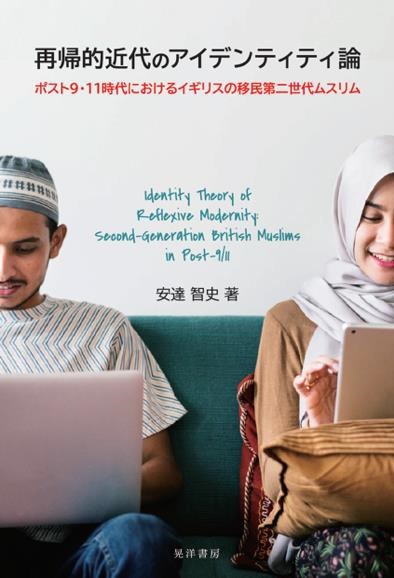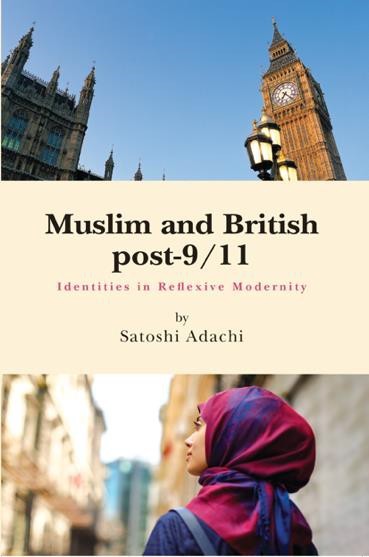My book, Muslim and British Post-9/11: Identities in Reflexive Modernity, analyses how second-generation British Muslims construct their identities and participate in society ‘as Muslims’ and ‘as British’ in the post-9/11 era. Its main finding is that they have developed a range of strategies to legitimise their participation in British society by actively referring to Islam rather than avoiding it.
The primary strategy for managing the tensions between being Muslim and being British is to differentiate religion from culture. This means disembedding Islam from the traditional practices of ethnic communities and redefining it as something purer but also more flexible to re-embed it in a different context. Through this differentiation, second-generation Muslims attribute to cultures some practices that are viewed negatively by British society, define Islam as more liberal and egalitarian, and present it as compatible with Western social values and lifestyles.
Religious knowledge helps young second-generation Muslims develop this distinction. Today, with improved religious institutions, literacy and information technology, individuals can access a wide range of Islamic knowledge and seek fresh religious interpretations that suit their tastes and lifestyles, away from the influence of traditional communities. By mobilising Islamic knowledge, second-generation Muslims can decide for themselves what Islam is (i.e. what they must follow) and what it is not (i.e. culture or what they do not necessarily have to follow). They use the former aspect to justify their involvement in British society while resisting certain practices that are incompatible with their lives by attributing them to the latter aspect.
Such strategies are particularly mobilised by female informants, who tend to face cultural pressure in their communities. They refer positively to people (e.g. Hadisha and Aisha) or traditions (e.g. knowledge and egalitarianism) in Islam to negotiate their lifestyles with their families.
In my doctoral thesis, I reviewed and evaluated postwar social integration policies in the UK from the perspective of post-multicultural political–philosophical theories: multiculturalism and liberal nationalism. After completing my PhD, I had the opportunity to work as a visiting researcher at the Institute of Community Cohesion, which was at the forefront of research on British social integration policy. When I started my research in England, Islamophobia in the UK was more intense than it is today in the wake of the London bombings that had taken place just four years earlier. Against this backdrop, young British Muslims‘ struggles with identity and integration in the UK have received increasing attention. In this context, political discourse on community cohesion policies and the politics of sharing Britishness targeting the Muslim community began to gain prominence.
However, as I engaged with local young Muslims, I developed a growing sense of incongruity with the discourse on Muslims in conflict. I was struck by young second- generation Muslims who spoke passionately about their faith while being actively engaged in study, work and interactions with non-Muslims. These experiences motivated me to explore young Muslims who were building identities and participating in society in ways that were different from the dominant discourse in post-9/11 Western society.
Accordingly, the issue I chose to address as a researcher was not found among the questions surrounding the (im)possibility of social integration, such as ‘Can Muslims integrate into British society?’ or ‘Can Western society and Islam coexist?’ Rather, my focus was on the logic or strategies that young Muslims use to integrate into British society: ‘How is being Muslim and being British compatible?’ or ‘What logic do young Muslims use to make the compatibility possible?’
This book contributes to the construction of a new identity theory. Previous research of Muslims in Western countries reveals findings similar to mine: the importance of distinguishing religion from culture among second-generation Muslims and women‘s negotiation of lifestyles with their communities through religion. However, these studies tend to lack a theoretical framework or are unproductive in terms of contributing to sociological theories. Many studies of British Muslims have adopted an open identity model developed since the 1980s, which assumes that identities are porous and change according to the situation. While this assumption seems to explain the flexibility of contemporary young Muslim identities by emphasising the importance of space and intersectionality, it is inadequate for understanding the robust commitment to Islam among contemporary young Muslims in the West or elsewhere.
To overcome the limitations of previous studies and to simultaneously explain the closedness (i.e. obedience to Islam) and openness (i.e. adaptation to Western society) of the identities presented by second-generation British Muslims, I adopted the theory of reflexive modernisation, originally developed by Anthony Giddens and Ulrich Beck. This theory emphasises how the reflexive engagement of individuals with traditions, using the expertise provided by professional systems, increases the flexibility of traditions and makes them viable in a global society. By using the theory of reflexive modernisation, this book has succeeded in providing a reason why being a pious Muslim could be a prerequisite for second-generation Muslims to become active citizens in the West; it explains the ‘British Muslim’ model—‘becoming British by becoming Muslim’.
The English edition of this book, Muslim and British Post-9/11: Identities in Reflexive Modernity, was published in 2023. Through this book, I hope to share my findings with a wider audience both in and beyond the English-speaking world.
 The awarded book (2020)
The awarded book (2020)
A woman and a man, both of whom appear to be devout Muslims represented in traditional outfits, are sitting on a green sofa—an Islamic colour—and enjoying the use of modern communication devices. The image on the book cover shows the harmony between Islam and the modern Western lifestyle.
 The English edition of the awarded book (2023)
The English edition of the awarded book (2023)
A Muslim woman in a headscarf walks through the streets under Big Ben in London. The image on the book cover suggests that for second-generation Muslims, enjoying life in Britain while observing religious requirements is a matter of course.
I am currently working on an international comparison of Muslim women’s participation in sport from the perspective of a ‘post-secular’ society.
Muslim women’s ‘bodies’ are important sites where Islam meets, communicates and sometimes conflicts with the modern or non-Muslim world. However, women are not simply passive objects to be discussed and controlled by society and communities but are active participants who negotiate or resist such social discourses and controls. Sport is also an important arena for the politics of women’s bodies through which they assert their rights and exercise agency. I aim to investigate how Muslim women are involved in sport in the midst of Islamisation and Westernisation/modernisation and how they proactively engage with both religious and secular societies through physical discipline and expression. I will thus delve into the meaning of sport for contemporary Muslim women in order to provide an insight into the current situation in post-secular society.
In Britain and Malaysia, I have examined the development of discourses, institutions and organisational initiatives surrounding Muslim women’s participation in sport and how individual women engage with sport, mobilising the diverse religious and secular resources offered by these environments. Through comparative research on Muslim women’s participation in sport and their physical discipline and expression, this study seeks to extend and renew the concept of the post-secular.